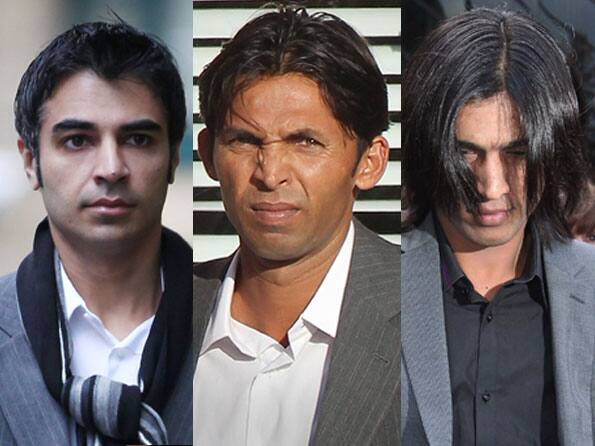
Cricket Country Staff
Editorial team of CricketCountry.
By CricketCountry Staff
The Anti-Corruption and Security Unit (ACSU) is mulling on several measures to combat the match-fixing, after fingers were raised on its functioning and powers in the wake of the spot-fixing scandal involving three Pakistan cricketers.
Written by Cricket Country Staff
Published: Nov 06, 2011, 10:12 PM (IST)
Edited: Nov 06, 2011, 10:12 PM (IST)


Pakistan crickters Salman Butt (L), Mohammad Asif (C) and Mohammad Aamer were jailed by a London court after they were found guilty in spot-fixing case © Getty Images
By CricketCountry Staff
London: Nov 6, 2011
The Anti-Corruption and Security Unit (ACSU) is mulling on several measures to combat the match-fixing, after fingers were raised on its functioning and powers in the wake of the spot-fixing scandal involving three Pakistan cricketers.
A report released by the International Cricket Council (ICC) says that the ACSU must give more priority by employing more cricket-savvy officers, as many experts opined recently that the current batch of officials is not completely aware with the game’s technicalities.
As a new measure, a cricketer could be asked about any unexplained wealth and how he acquired it, or risk not being selected, the Telegraph reported.
Under immense pressure from stakeholders such as sponsors and broadcasters, the ICC has ordered a review of the ACSU. Also, the evidences presented against the three jailed cricketers – Salman Butt, Mohammad Asif and Mohammad Aamer – suggests the review needs to be implemented urgently.
During the hearing of the spot-fixing case, agent Mazhar Majeed was seen bragging and boasting, contacting Pakistan players directly by phone, and waving around £50 notes.
The report also said that there is a far more discreet world of the match-fixing mafia in Dubai, Pakistan and India; of texts and phone calls which cannot be traced, including Swiss bank accounts inaccessible by police.
Ravi Sawani, the former chief investigator who left the position after three years, revealed during the trial that he did not know what a ”bracket” was. A bracket is the basic unit of spot-fixing and illegal gambling, a period of 10 overs during an innings.
However, Justice Jeremy Cooke described it as an eight-over block in Pakistan.
Sawani claimed he had heard about ”session” to describe a block, but he didn’t know anything about bracket.
This website uses cookies so that we can provide you with the best user experience possible. Cookie information is stored in your browser and performs functions such as recognising you when you return to our website and helping our team to understand which sections of the website you find most interesting and useful.
Strictly Necessary Cookie should be enabled at all times so that we can save your preferences for cookie settings.
If you disable this cookie, we will not be able to save your preferences. This means that every time you visit this website you will need to enable or disable cookies again.
